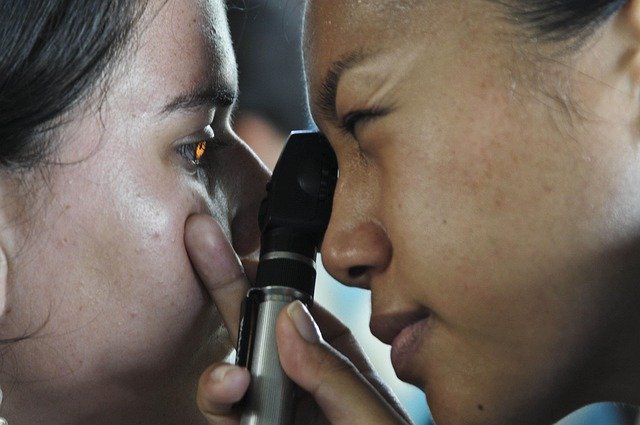Cross-Border Degree Programs Available to Thai Applicants
Thai students seeking higher education beyond national borders now have unprecedented access to diverse academic programs worldwide. Cross-border degree opportunities span multiple continents, offering specialized fields of study, cultural immersion, and internationally recognized qualifications. Understanding application requirements, funding options, and program structures helps prospective students make informed decisions about their educational futures.

International Study Opportunities with Degree Programs Guide
Cross-border education has transformed how Thai students approach higher learning. Universities across Europe, North America, Australia, and Asia actively recruit international candidates, offering programs taught in English and other languages. These institutions provide bachelor’s, master’s, and doctoral degrees across disciplines including engineering, business administration, medicine, arts, and technology. Application processes typically require academic transcripts, language proficiency tests, letters of recommendation, and personal statements demonstrating motivation and qualifications.
Many programs feature exchange agreements with Thai universities, allowing credit transfers and dual-degree pathways. Students can complete portions of their studies domestically before transitioning abroad, reducing overall costs while maintaining academic continuity. Online and hybrid formats have expanded accessibility, enabling students to balance work, family, and education commitments while earning internationally recognized credentials.
Higher Education Abroad and Global Student Experiences
Studying internationally exposes Thai students to diverse teaching methodologies, research opportunities, and professional networks. Campus environments foster multicultural interactions, developing language skills and cross-cultural competencies valued by global employers. Students participate in internships, research projects, and community engagement activities that enhance practical knowledge beyond classroom learning.
Accommodation options range from university dormitories to private rentals and homestays with local families. Many institutions provide orientation programs, academic advising, and support services specifically designed for international students. Student organizations and cultural clubs help newcomers integrate into campus life while maintaining connections to Thai heritage and traditions.
Academic calendars vary by country and institution, with semester or trimester systems determining course loads and examination schedules. Understanding these structures helps students plan travel, manage coursework, and maximize learning outcomes throughout their degree programs.
Scholarship and Financial Aid Opportunities
Funding remains a primary consideration for Thai students pursuing cross-border education. Numerous scholarship programs target international candidates, offering partial or full tuition coverage, living stipends, and travel allowances. Government-sponsored initiatives, university-specific awards, and private foundation grants provide financial support based on academic merit, financial need, or specific fields of study.
Application deadlines for scholarships often precede university admission deadlines, requiring early preparation and careful attention to eligibility criteria. Required documentation typically includes academic records, financial statements, research proposals, and essays articulating educational goals and career aspirations. Some programs require interviews or additional assessments to evaluate candidate suitability.
| Scholarship Program | Provider | Coverage | Eligibility Focus |
|---|---|---|---|
| Fulbright Program | U.S. Government | Full tuition, living expenses, travel | Graduate studies, leadership potential |
| Chevening Scholarships | UK Government | Full tuition, stipend, airfare | Master’s programs, professional experience |
| Australia Awards | Australian Government | Tuition, living costs, health insurance | Development-focused fields |
| DAAD Scholarships | German Government | Varies by program level | Academic excellence, research orientation |
| Erasmus+ | European Union | Partial funding, mobility grants | Exchange programs, joint degrees |
Prices, rates, or cost estimates mentioned in this article are based on the latest available information but may change over time. Independent research is advised before making financial decisions.
Beyond scholarships, students can explore education loans from Thai banks and international financial institutions. Work-study programs allow part-time employment on campus, helping offset living expenses while gaining professional experience. Tax benefits and education savings plans may provide additional financial relief for families supporting students abroad.
Application Requirements and Preparation Strategies
Successful applications require thorough preparation beginning 12 to 18 months before intended enrollment. Standardized tests such as TOEFL, IELTS, GRE, GMAT, or SAT demonstrate language proficiency and academic readiness. Test preparation courses and practice materials help students achieve competitive scores that strengthen application portfolios.
Personal statements and essays allow applicants to showcase unique perspectives, experiences, and aspirations. Effective narratives connect past achievements to future goals, demonstrating alignment with program objectives and institutional values. Letters of recommendation from professors, employers, or community leaders provide external validation of candidate capabilities and character.
Document authentication and translation services ensure academic records meet international standards. Thai transcripts require official translations and notarization, while degree certificates may need verification through government agencies or educational authorities. Visa applications involve additional documentation, including financial proof, health examinations, and background checks.
Practical Considerations for Thai Students
Cultural adaptation challenges accompany academic pursuits abroad. Climate differences, dietary adjustments, and communication styles require flexibility and open-mindedness. Maintaining mental health and emotional well-being involves building support networks, accessing counseling services, and staying connected with family and friends in Thailand.
Healthcare systems vary significantly across countries, necessitating comprehensive insurance coverage for medical emergencies and routine care. Understanding local regulations regarding student employment, residence permits, and travel restrictions ensures compliance with legal requirements throughout degree programs.
Post-graduation opportunities include further studies, employment in host countries, or return to Thailand with enhanced qualifications and international experience. Alumni networks and career services facilitate job searches, professional development, and lifelong connections to global communities.
Cross-border degree programs offer Thai students pathways to academic excellence, personal growth, and career advancement. Careful planning, financial preparation, and cultural awareness maximize the benefits of international education experiences. By exploring available options, understanding application processes, and securing appropriate funding, Thai applicants can successfully navigate the journey toward globally recognized higher education credentials.




